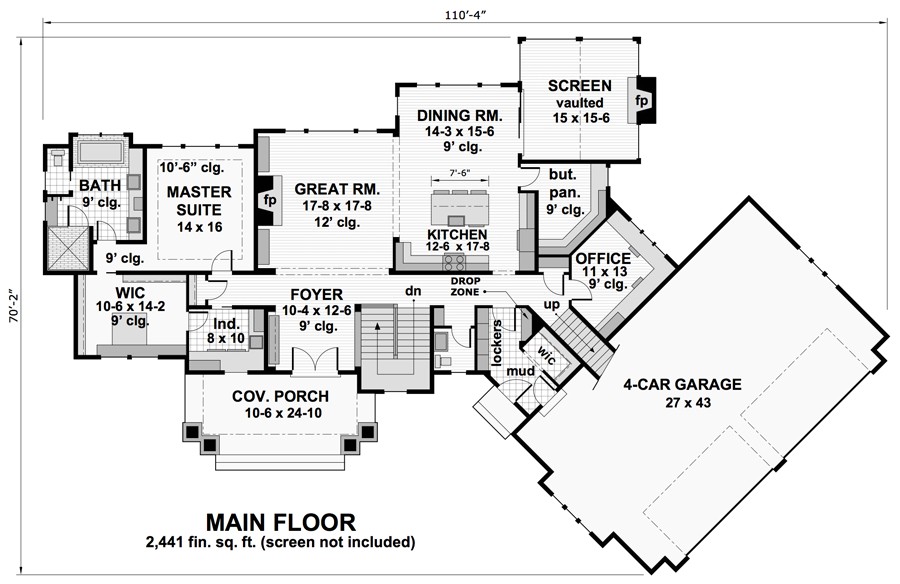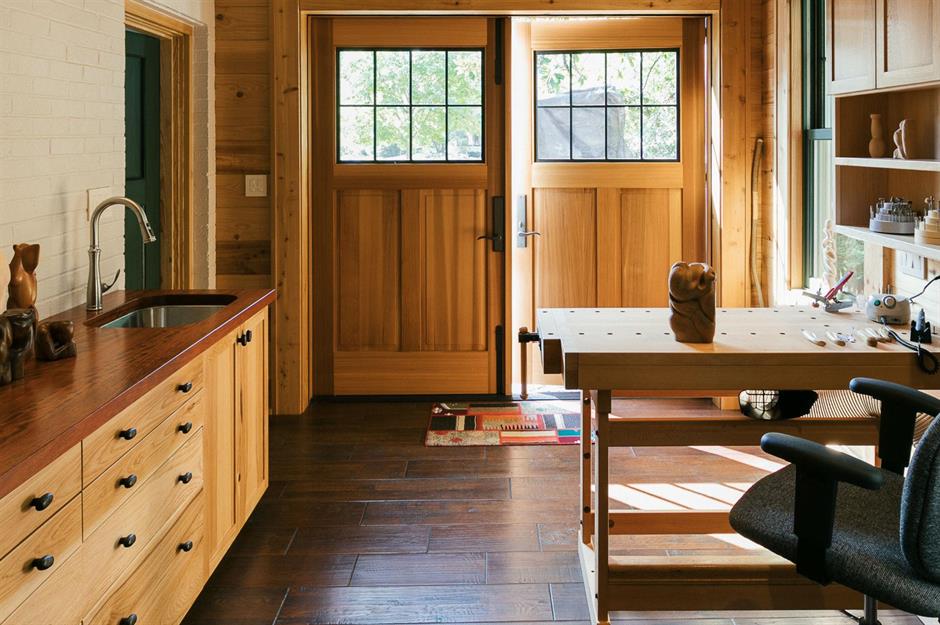
A garage door repairman will help you protect your home. They are also skilled in installing and servicing garage doors of all types, both residential and commercial. The right garage door technician can help you no matter what your needs are.
Find a good garage door repairman
Before you hire a garage-door repairman, verify that they are licensed and insured. Garage door repair businesses are required to have general liability insurance. This protects homeowners against financial loss if there is an accident. In addition, some states require contractors to have additional bonds that can cover a homeowners' loss in case of incomplete work or poor workmanship.
Check online reviews to find out if a company is trustworthy. You can also ask your friends and neighbors for their opinions. Call your local Better Business Bureau to inquire if complaints have been filed against any contractor.

Garage Repair by a Professional
For any home improvement or repair, it is vital to hire professionals. But if you're going to be dealing with an expensive or high-profile home improvement project, such as a garage door repair, it can be particularly tempting to try and save money by doing it yourself.
While it can be an effective way to save money, the risk of injury and damage can be significant. This is especially true when you don't have the necessary experience and knowledge to work on a garage door.
Most garage doors can be repaired by a licensed technician. They can handle any type door.
You can get free estimates as well as 24/7 emergency repairs. This will help you avoid the stress of having a problem with your garage when you are at home or away on holiday.

You can get estimates from various companies if you aren't sure how much a garage door repair will cost. Once you have compared the prices, it is possible to make an informed choice about whether you are going ahead with the work.
While garage door repairs are generally not costly, they can be quite expensive depending on the job. Garage door repairs typically include labour, parts, and any other materials required.
This process is only possible if you use the correct tools. It is important to avoid using tools that weren't made for this purpose as they can cause damage or injury to your garage doors.
FAQ
What would it cost for a home to be gutted versus what it would cost to build one?
The process of gutting a house involves removing all contents inside the building. This includes walls, floors and ceilings, plumbing, electrical wiring and appliances. It's usually done when you're moving into a new place and want to make some changes before you move in. Because of the many items involved in gutting a house, it is usually very costly. The average cost to gut home ranges from $10,000 to $20,000, depending on your job.
Building a home means that a builder constructs a house piece by piece, then adds windows, doors, cabinets and countertops to it. This is usually done after buying a lot of lands. It is usually cheaper than gutting a house and will cost around $15,000 to $30,000.
When it comes down to it, it depends on what you want to do with the space. If you are looking to renovate a home, it will likely cost you more as you will be starting from scratch. If you're building your home, however, you don't have to tear everything down and start over. Instead of waiting for someone else, you can build it how you want.
How long does it take for a bathroom remodel?
It usually takes two weeks to remodel a bathroom. However, it all depends on how big the project is. You can complete smaller jobs like adding a sink or vanity in a few days. Larger projects such as removing walls, laying tile floors, or installing plumbing fixtures may require several days.
Three days is the best rule of thumb for any room. You would need 12 days to complete four bathrooms.
What does it cost to tile a shower?
If you want to do it yourself, go big. Full bathroom remodels are an investment. It is worth the investment in high-quality fixtures and materials, especially when you consider the long-term benefits of having a beautiful space that will last for many years.
The right tiles can make a huge difference in how your room looks and feels. This guide will help you select the right tiles for your project, no matter how small or large.
The first step is to decide what type of flooring you would like to install. Common choices include ceramics and porcelain as well as stone and natural wooden. Next, pick a style like classic subway tiles or geometric designs. Finally, pick a color palette.
If you are remodeling a large bathroom, you'll likely need to match the tile with the rest. For example, you may opt for white subway tile in the kitchen and bath area while choosing darker colors in other rooms.
Next, estimate the scope of work. Do you think it is time to remodel a small powder-room? Or would you prefer to add an extra bedroom in your master suite with a walkin-in closet?
Once you have determined the scope of your project, go to local shops and look at samples. This way, you can get a feel for the product and its installation techniques.
Finally, shop online for great deals on ceramic and porcelain tiles. Many retailers offer free shipping or discounts on bulk orders.
What is the difference between renovation and remodel?
A remodel is a major change to a room or part of a room. A renovation refers to minor changes made to a particular room or area of a given room. A bathroom remodel, for example, is a major undertaking, while a new sink faucet is minor.
Remodeling entails the replacement of an entire room, or a portion thereof. A renovation is simply a change to a specific part of a space. For example, a kitchen remodel involves replacing counters, sinks, appliances, lighting, paint colors, and other accessories. However, a kitchen renovation could include changing the color of the wall or installing a light fixture.
How do I determine if my house requires a renovation or remodel?
You should first check to see if your home has had any recent updates. A renovation might be in order if the home has not been updated for some time. If your home appears brand-new, you might consider a renovation.
Second, make sure to inspect the state of your home. A renovation may be necessary if your home has holes in its drywall, cracked wallpaper, or missing tiles. A remodel is not necessary if your home appears to be in great condition.
Another factor to consider is the general state of your home. Is the structure sound? Do the rooms look clean? Are the floors clean and tidy? These questions are important when deciding which type of renovation you should go through.
What are some of the largest costs associated with remodeling your kitchen?
A few key costs should be considered when planning a kitchen remodeling project. These include demolition, design fees, permits, materials, contractors, etc. But when we look at these costs individually, they seem pretty small. But when you combine them, they quickly add up to be quite significant.
Demolition is the most costly cost. This includes the removal of old cabinets, countertops, flooring, and appliances. You will then need to remove the insulation and drywall. You must then replace these items with new ones.
Next, you must hire an architect to draw out plans for the space. You will need permits to ensure your project meets the building codes. Next, you will need to hire someone to actually build the project.
Finally, after the job is completed, you must pay the contractor. You could spend anywhere from $20,000 to $50,000, depending on how large the job is. That's why it is important to get estimates from multiple contractors before hiring one.
You can sometimes avoid these costs if you plan. You may be eligible to get better prices on materials, or you might even be able skip some of your work. Knowing what is required will allow you to save both time and money.
Many people install their cabinets by themselves. People believe that this will save them money since they won't have to hire professionals for installation. They often spend more trying to install cabinets themselves. Professionals can typically complete a job in half the time it would take you.
You can save money by buying unfinished materials. You should wait until all of the pieces have been assembled before you buy pre-finished items like cabinets. Unfinished materials can be used immediately by you if purchased. And if something doesn't turn out exactly as planned, you can always change your mind later.
Sometimes, however, it's not worth all the effort. You can save money by planning your home improvement project.
Statistics
- Windows 3 – 4% Patio or backyard 2 – 5% (rocketmortgage.com)
- 55%Universal average cost: $38,813Additional home value: $22,475Return on investment: 58%Mid-range average cost: $24,424Additional home value: $14,671Return on investment: (rocketmortgage.com)
- Attic or basement 10 – 15% (rocketmortgage.com)
- Following the effects of COVID-19, homeowners spent 48% less on their renovation costs than before the pandemic 1 2 (rocketmortgage.com)
- bathroom5%Siding3 – 5%Windows3 – 4%Patio or backyard2 – (rocketmortgage.com)
External Links
How To
How can you plan a bathroom within a budget?
It is important to be able to afford any remodeling project. How will you pay for it later if your budget isn't available now?
A bathroom renovation requires careful planning and an understanding of the costs involved. Bathroom remodeling projects can be quite costly.
Labor is one of the largest expenses. Prices for labor vary depending on how big the job is and whether you are hiring a professional contractor or DIYer. Professional contractors usually charge more per hour than a DIYer because they have experience and expertise.
Materials are another significant expense. Depending on your type of material, prices may range anywhere from $100 to $1000 per square foot.
The final factor is the cost for energy. This includes both your electricity and gas bills. Peak demand is when energy costs are most high.
You also have to consider the time required to complete the project. Bathroom renovations are usually a time-consuming project that requires patience and patience. While some projects may take several weeks to complete, others may take months.
In addition to these three major categories, there are smaller items such as paint, wallpaper, flooring, etc., which add to the project's overall cost.
Here are some tips for bathroom remodeling projects:
-
Determine Your Budget - Before starting any remodeling project, you should figure out what you can afford. It doesn't really matter if it is something you can afford. Setting a realistic budget is key to knowing where you stand financially.
-
Plan Ahead - It is best to plan your bathroom remodel for the off season. The winter months typically bring lower energy usage rates, meaning you will save money on heating and cooling costs. You could even consider scheduling your remodel at night when fewer people use the restroom.
-
You can shop around - Once your budget has been established, you should start to search for potential vendors. Many different options are available to you, including local businesses, online retailers, and even friends and family members who may be willing to work with you on the project.
-
Choose an Estimator – Once you have identified all potential vendors, you need to contact each individual for estimates. To get the best pricing possible, you will want to get multiple estimates.
-
Get Multiple Estimates. After you receive your initial estimates, it is important to compare them with each other to determine which vendor has the lowest price. Once you have found this vendor, you should ask them to provide you with a written estimate.
-
Include All Costs in Your Estimate - You need to include all expenses you intend to spend on your project. Particularize on any fees, taxes, permits or other requirements that may be applicable to your area.
-
Don't Neglect Small Details - While planning your bathroom remodel, you should also pay attention to small details. Do you really need a new toilet? Is there space for a curtain rod to hang from the shower? These changes can easily increase the total amount spent on the project.
-
Consider Insurance - The scope of your bathroom remodeling project will impact the insurance you have. Don't forget to check your insurance company if you haven't already. You may end up with additional costs.
-
Hire a Professional. It is possible to complete the task yourself, but it is better to let someone else do it.